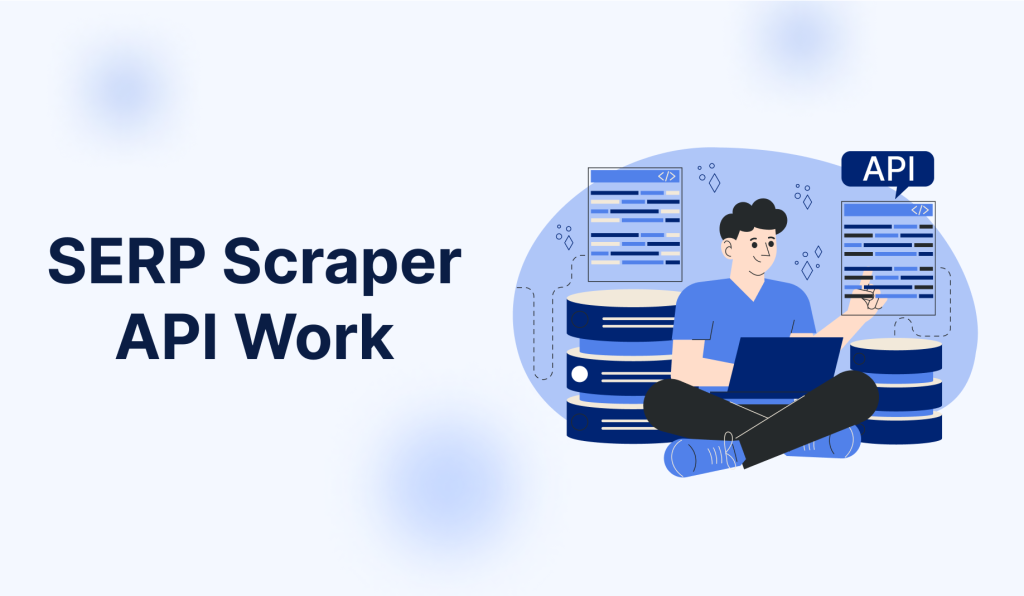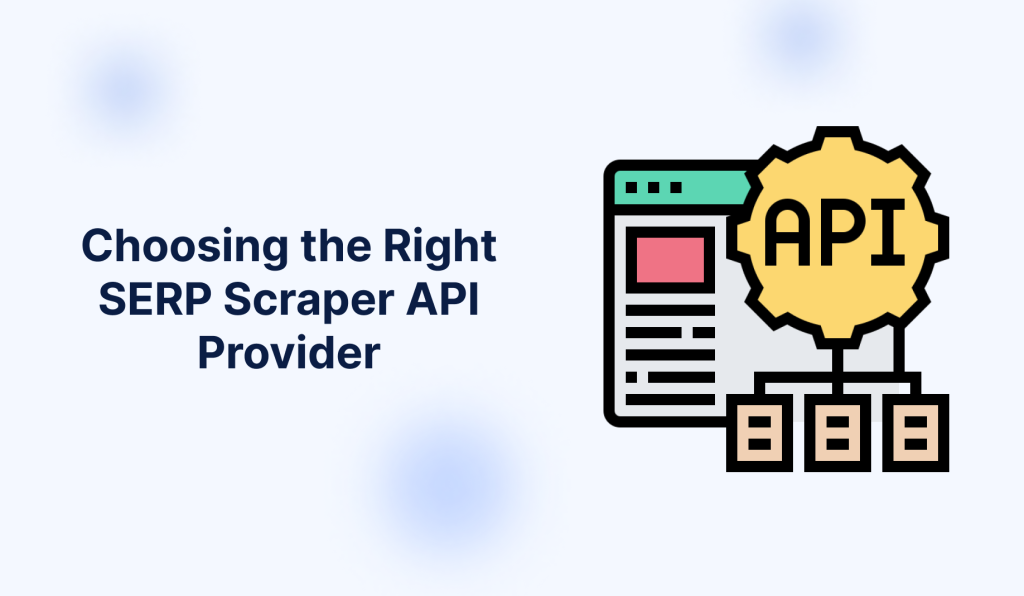
In today’s fiercely competitive online landscape, staying ahead of the game is crucial for achieving success in SEO. And one tool that can give you the upper hand is the SERP Scraper API. This API has the capability to extract valuable data and insights from search engine results pages (SERPs), offering numerous opportunities to enhance your SEO efforts. Utilize its features to optimize your strategies and achieve better search engine visibility.
By utilizing the Real-Time Search Result API, you can access real-time information about search rankings, keyword performance, and competitor analysis. This powerful tool allows you to monitor your own website’s visibility, track the performance of your keywords, and stay updated on your competitors’ strategies.
With the ability to scrape and analyze SERP data on a large scale, you can make data-driven decisions and optimize your SEO strategies to achieve higher rankings, increase organic traffic, and ultimately drive more conversions.
If you’re ready to unlock the secrets of the Search Engine Result Page Scraper API and elevate your SEO success, join us as we explore this game-changing tool’s features, benefits, and practical applications. Prepare to take your SEO game to the next level.
What is SERP Scraper API
The SERP Scraper API is a powerful tool that allows you to extract data from search engine results pages programmatically. It enables you to retrieve information such as search rankings, organic listings, featured snippets, and other valuable data points related to your targeted keywords.
Traditionally, extracting this data manually would be a time-consuming and tedious process. However, with the SERP Monitoring API, you can automate the data extraction process, saving you valuable time and effort.
The API works by sending a request to the search engine’s server, simulating a search query, and retrieving the HTML response. It then parses the HTML response and extracts the relevant data points based on your specified parameters.
How Does SERP Scraper API Work

The Competitor Analysis API works by leveraging web scraping techniques to retrieve data from search engine results pages. The process involves sending HTTP requests to the search engine’s server and receiving the HTML response. The response is then parsed to extract the desired data and returned in a structured format.
To use the API, specify the search engine, the keyword to track, and additional parameters like the number of results, country or language settings, and device type (desktop or mobile). Customize your search to fit your specific needs.
Once the API receives your request, it sends a GET or POST request to the search engine’s server, simulating a search query. It then receives the HTML response, which contains the search results for the specified keyword. The API parses the HTML response using XPath or CSS selectors to extract the desired data points, such as the page title, URL, snippet, and position.
The extracted data is then returned to you in a structured format, such as JSON or XML, making it easy to integrate the data into your SEO tools, dashboards, or applications.
Benefits
- Real-time data: One of the key benefits of using the SERP Scraper API is the ability to access real-time data. Unlike traditional SEO tools that provide outdated information, the API allows you to retrieve the most up-to-date search engine results. This real-time data is crucial for making informed decisions and staying ahead of your competitors.
- Advanced competitor analysis: The Competitor Analysis API enables you to gain valuable insights into your competitors’ SEO strategies. By tracking their search rankings, analyzing their organic listings, and monitoring their featured snippets, you can identify their strengths and weaknesses.
- Keyword performance tracking: With the SERP Monitoring API, you can monitor the performance of your targeted keywords. By tracking their rankings, click-through rates, and organic traffic, you can identify opportunities for improvement and optimize your content accordingly.
- Data-driven decision-making: By leveraging the data provided by the API, you can make informed decisions about your SEO strategies. The API enables you to optimize your website’s structure, create high-quality content, and improve your backlink profile.
- Scalability and automation: The SERP Scraper API is designed to handle large-scale data extraction and analysis. Whether you need to scrape thousands of keywords or track multiple search engines, the API can handle the workload. Additionally, by automating the data extraction process, you can save time and effort, allowing you to focus on other important aspects of your SEO strategy.
Common Use Cases
The Search Engine Data Extraction API has a wide range of use cases that can benefit SEO professionals, marketers, and businesses. Here are some common scenarios where the API can be applied:
- rank tracking: The API allows you to track the ranking positions of your targeted keyword. Constantly monitor your rankings to measure the effectiveness of your SEO efforts. Identify changes and take appropriate actions to maintain or improve your rankings over time.
- Competitor Analysis: The Competitor Analysis API lets you analyze your competitors’ SEO strategies. Track their rankings, analyze their organic listings, and view their featured snippets to gain insights into their strategies. Identify opportunities to outperform them in search.
- Keyword research: The API can help you find new keyword opportunities. By analyzing search engine results for specific keywords, you can see related terms, changes in tail length, and upcoming trends. This information can help you optimize your content and target keywords with high search volume and low competition.
- Content Optimization: The API provides valuable data for optimizing your website content. Analyzing search engine results allows you to identify high-ranking pages, analyze their content structure, and extract relevant keywords and phrases. This information can guide your content creation and help you create more relevant and well-crafted content.
- SERP feature tracking: Using the API, you can track the availability of various SERP features such as feature snippets, knowledge graphs, and local packs. Analyze these trends to improve your content quality. Increase your visibility in search results.
Choosing the Right SERP Scraper API Provider

When it comes to choosing a SERP API provider, there are several factors to consider. Here are some key points to keep in mind:
- Reliability and uptime: Ensure that the API provider has a reliable infrastructure and a high uptime guarantee. The last thing you want is for your data extraction process to be interrupted due to server downtime or technical issues.
- Data quality and accuracy: Look for an API provider that offers accurate and reliable data. The quality of the scraped data can greatly impact the effectiveness of your SEO strategies. Ensure the provider has strong data extraction algorithms.
- Scalability and performance: Choose an API provider that can handle your data extraction requirements. Whether you need to scrape thousands of keywords or track multiple search engines, make sure the provider can scale their infrastructure to meet your needs.
- Data privacy and security: Data privacy and security should be a top priority when choosing an API provider. Ensure that the provider has proper data protection measures in place, such as encryption and secure data transmission protocols. Additionally, check if the provider complies with relevant data protection regulations, such as GDPR.
- Pricing and support: Consider the pricing structure and support options offered by the API provider. Look for transparent pricing plans that fit your budget and offer flexibility in terms of usage limits and data volume. Additionally, ensure that the provider offers responsive customer support to address any technical issues or queries you may have.
Implementing API into Your SEO Strategy
To implement the SERPs API into your SEO strategy, follow these steps:
- Define your objectives: Clearly define your SEO objectives and determine how the API can help you achieve them. Whether it’s improving your search rankings, increasing organic traffic, or expanding your keyword portfolio, align your API usage with your goals.
- Choose the right API provider: Research and select a reputable API provider that meets your requirements in terms of reliability, data quality, scalability, and pricing. Consider factors like uptime guarantees, data accuracy, customer reviews, and the provider’s track record in the industry.
- Set up your API integration: Once you’ve chosen an API provider, set up your API integration. This typically involves signing up for an account, obtaining API credentials, and configuring the API parameters based on your requirements. Follow the provider’s documentation or guidelines to ensure a smooth integration process.
- Develop data extraction scripts: Depending on your technical capabilities, you may need to develop data extraction scripts or use existing libraries to interact with the API. Leverage programming languages like Python, JavaScript, or Ruby to send requests to the API, parse the responses and extract the desired data points.
- Analyze and act on the data: Once you’ve retrieved the data from the API, analyze it to gain insights and identify opportunities for improvement. Use the extracted data to optimize your content and refine your keyword targeting. Adjust your backlink profile to enhance your SEO strategies.
Conclusion:
In today’s competitive SEO landscape, gaining access to real-time data and insights is crucial for achieving success. The Search Engine Data Extraction API unlocks a world of possibilities by allowing you to extract valuable data from search engine results pages and optimize your SEO strategies based on data-driven decisions.
FAQs
Using a SERP Scraper API is generally legal, but it’s important to comply with the terms of service of the search engines you are scraping and the API provider. Always use ethical practices to avoid potential issues.
The SERPHouse API offers detailed competitor analysis features, allowing you to track competitor rankings, identify their top-performing keywords, and analyze their overall search presence. This helps in developing targeted strategies to outperform them.
Ensure accurate data collection by setting proper query parameters, using reliable proxies, and adhering to the API provider’s guidelines. Regularly verify the data against manual checks to maintain accuracy.
By using a SERP Scraper API, you can monitor keyword rankings, analyze competitor performance, identify SERP features, and make data-driven decisions to enhance your SEO efforts.

